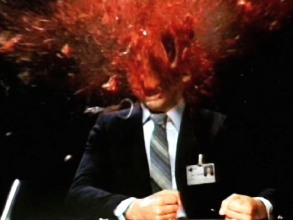
Most of us, at one time or another (or maybe even incessantly), want to know why we are the way we are. Why do we do the things we do, think the way we think, and feel the things we feel. But wanting to know doesn’t mean we can know. And trying to come up with answers is a seductive but futile pursuit.
The unconscious brain, which drives this deep desire to know, is a pattern-detector and connection-maker. Sometimes the patterns it sees and the connections it makes are useful, such as in scientific or creative pursuits (or even in helping us remember where we put something). But the unconscious brain just as often sees patterns and makes connections where none exist. It’s notorious for jumping to conclusions.
The conscious part of the brain gets to accept or reject the connection offered up by the unconscious. If the conscious part of the brain (what we think of as “I”) accepts it, our brain turns that potential connection into a real one and sort of cements it into place. Now we have an explanation. Now we know that this caused that: some event, situation, or experience that happened in the past is the reason why we do, think, or feel some particular thing today.
Chances are considerably better than average that we’re wrong. There are far too many factors that have gone into making us who we are, the majority of which we aren’t even aware of. But even if we somehow did manage to figure it out correctly, so what?
There’s not much power in reasons or explanations. In fact the more reasons we come up with to explain why we are the way we are today, the less power we have. The more we insist on being nothing more than the effect of hundreds of thousands of causes, the less freedom we have to be, do, think, or feel anything different.
It’s as if we’re trying to replace our actual fluid and dynamic selves with stone replicas of ourselves. Instead of being here now, fully present, we’re busy trying to explain how we got here. Instead of trying to live, we’re trying to not-live. All of us will be cold and hard as stone soon enough. Let’s not hasten the embalming process while we’re still breathing.



